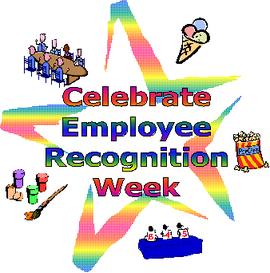- 01Feb2010
-
Employee Recognition: why is it so hard?
- By Ian Bradley
- 0 Comments
Just say: “good job,” it’s simple, certainly brief and surprisingly effective.
As an occupational psychologist listening to stories of workplace stress and discontentment, I frequently wish that I had a communication pipeline to my clients’ bosses to whom I could whisper the above advice.
For the hard working but often harassed administrative assistants who receive requests, or rather, order after order from bosses with little consideration of the existing to-do lists, such whispered advice would provide obvious relief. However, I also see C-level executives – people with great organizational power and responsibility who arduously strive to accomplish a myriad of tasks often not to their own level of satisfaction or ideals. These people often let it slip that they would feel much better about themselves and their own job performance if the CEO would say: “good job,” even infrequently.
As someone whose business it is to deal with workplace problems, the interesting thing to me is why don’t bosses do it more often. It certainly can’t be blamed on lack of current research. If you’re a numbers guy then you will be attracted to the research cited by the OC Tanner – a company that specializes in employee recognition;
Companies that effectively recognize excellence enjoy a return on equity that is more than triple that of their non-recognize competitors.
Teams members that can endorse the statement; “my manager does a good job recognizing employee contributions also typically place in the top scores for customer as well as employee satisfaction.
Employee morale at work is directly correlated with the recognition that their boss provides.
In my experience as an executive coach, I think that supervisors often fail to compliment good performance because they operate under a number of commonly held myths.
Myth #1. Vigilance above all.
Many bosses put more pressure on themselves than required. They define management as constant surveillance, prying their efficacy as a manager on the surveillance of employee errors or omissions. They are on-guard for mistakes, and when they find them, they pounce. Oftentimes, these managers are not mean or critical people by nature. They simply have identified management as responsibility for ensuring that things don’t go off-track.
Invariably, this style of management is associated with stress and tension. The tension is obvious for the workers being supervised since they spend inordinate effort avoiding criticism by not making mistakes, At the very best, employees managed through criticism can only feel relief that they have avoided or escaped censure. Passion, excitement and creativity are not part of the job description.
The vigilant manager is not really relaxed either since vigilance demands continuous effort as it sucks the joy from the work place interactions. At the very best, these managers go home knowing that nothing really bad happened at work today, but never do they share the joy of leading a team that willingly goes that extra-mile to achieve excellence.
Myth #2 Recognition fosters complacency.
I’ve seen many bosses who want to recognize good performance, but they’re scared. They are worried that if they do reward Jacques for that extra- work he displayed in getting the customer’s order out on time, but maybe Jacques will forget that he still has to meet his quota for the month. Or, if the boss were to recognize and reward Suzanne for her productivity last month, then she’ll think that she never has to do any better, ever.
Instead of viewing recognition as a facilitator to spur performance to even higher levels, these managers fear that recognition is like a post-coital cigarette -a self-satisfied semi-permanent contentment.
It isn’t! Appropriate reward and recognition primes workers to be even better. Recognition stimulates more effort, not satiation. I’d whisper this to their ears as well.
Myth #3 It’s too simple!
Yes, it is simple but it’s effective. Many managers perceive employee effort, they want to reward it, but they wait for a big occasion, like the semi-annual bonus or the quarterly performance review. Saying “great job” seems too easy. In the manager’s mind the phrase doesn’t balance with the effort that the employee put into the task.
What can I say? They’re right.
Often immediate verbal recognition can be brief and simple. It’s not temporally equivalent to the time that an employee probably spent doing the job, but nonetheless, it works. We are social animals, we are built not only to perform but to have that performance recognized by others, especially others that we view as important. We are also social animals with short attention spans; immediate rewards can have an enduring impact. So I’d also whisper to that boss:
Don’t wait for the annual review, the end of the quarter or even the end of the
day, when you see something that you like, mention it.
Of course, there are some caveat that you can read about in journals and texts in management. Compliments must be appropriate, sincere, and delivered by bosses who are generally liked and perceived as procedurally just. But, in all my years as a psychologist listening to battle-scared warriors of the workplace, I’ve never had a client complain about a boss that was too complimentary or too rewarding.
When in-doubt, give a compliment.
CATEGORIES Blog executive coaching


COMMENTS